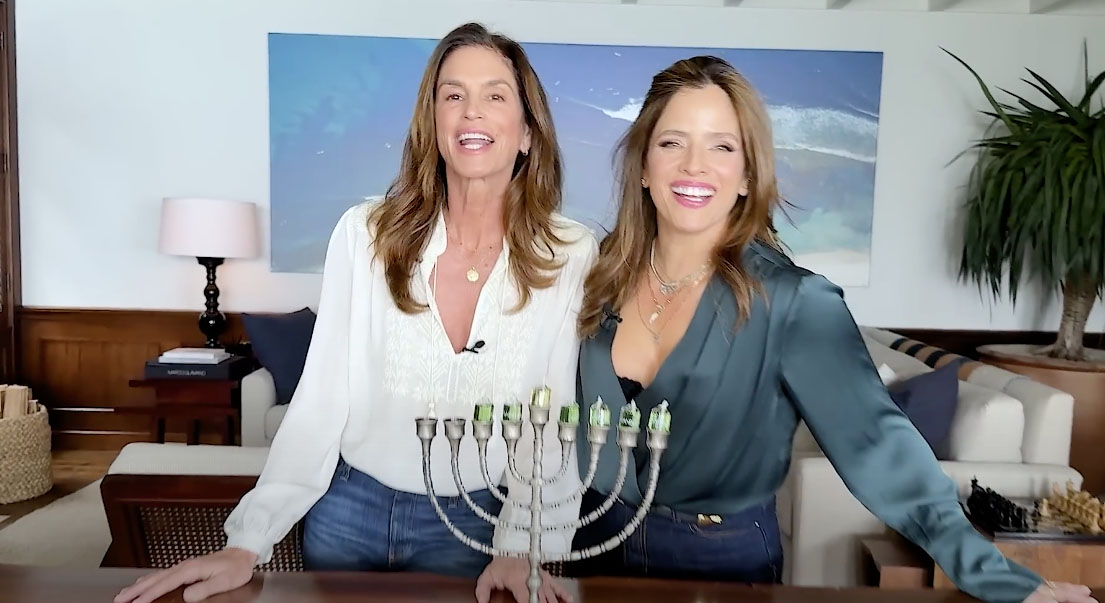
Walking down the aisle to the chuppah nearly thirty-five years ago, my hands were shaking so badly I nearly dropped my bouquet. The day before, a married friend who noticed my barely hidden panic had taken me aside and said, “Don’t worry. You’re making the right decision.”
She was right. I had made the right decision. When Jeff and I were dating, we clearly saw the tangible and intangible benefits of a Torah life: inviolable family time (with no computer or phone distraction) is ensured by Shabbat and holiday observance. Children and adults gain self-discipline through mitzvah observance. Ideally, everyone learns to check their egos and prioritize doing things for others and for God.
We live in complicated, anxious, confusing times. This makes the transcendent benefits and moral clarity of Judaism that much more indispensable in marriage and family life.
These are the ideal outcomes, but nothing is foolproof. We live in complicated, anxious, confusing times. This makes the transcendent benefits and moral clarity of Judaism that much more indispensable in marriage and family life.
Like any other couple who has been blessed with a happy marriage, we’ve also worked for it. We’ve faced serious challenges and weathered rough patches. We’ve raised four children and survived their teenage years. We’ve both changed. Each of us has been taken by surprise when old, unresolved emotional baggage suddenly demanded a hearing. With God’s help, our deep love, shared values, long-term vision, and commitment to one another have seen us through. Making time for laughter, music, and kick-back relaxation also helps.
The following 18 marriage-boosting philosophies have helped us enormously and allowed us to provide a model for our children to follow in their own marriages. We learned many of these at the outset from our Torah teachers and from observing interactions among more experienced married friends. Neither of us bats 1,000, but we do okay. My list could be longer, but eighteen is “chai” — life. May your marriage be blessed with a long and beautiful life.
1. Love is a decision. You may have fallen in love during the heady days of a new romance, but sustained love is a conscious choice of renewal each and every day.
2. Don’t keep score. Marriage is not a transactional relationship. Good marriages are nourished by a perpetual cycle of giving, being willing to receive, and giving back. Stopping to receive and feel replenished is not the same as “taking.”
3. Make space. Husbands and wives have different needs for togetherness. Honor and encourage one another’s need for reasonable personal space, whether for privacy, friendships, hobbies or new endeavors.
4. Accept your spouse. Commit to loving the person as they are now, not the person you’d like to “make them” into.
5. Build up your spouse. Cheer and encourage them in their successes and efforts. No one outgrows the need for encouragement.
6. Bring kedusha into your marriage. Building a life based on Jewish values and observance– Shabbat, kashruth, holidays, chesed, tzedakah and other mitzvot builds a shared mission, vision, and spiritual satisfaction. It reminds us and teaches our children that values are not up for grabs according to the latest societal fad.
7. Put the “you” before “I.” As much as possible, put your spouse’s needs and desires above your own, but not to the point of exploitation.
8. When arguing, put the “I” before “you.” Avoid sentences that begin with the often accusatory “you,” a word often followed by “never” or “always.” Try to see your spouse’s point of view; few issues are black-and-white.
9. Marriages require daily care. Love notes hidden under a dinner plate or on the car dashboard; little gifts “just because,” and other small messages of love and affirmation nurture your relationship in ways that pay huge dividends.
10. Complacency rots your marriage from the inside. You paid careful attention to thoughtfulness, courtesy and presenting your best self during courtship. Don’t get lazy after marriage. No one is owed or deserves lifelong love and commitment if you pull a “bait and switch.” Small courtesies such as saying “please” and “thank you” and stopping what you’re doing to greet your spouse with a smile when they come home show you still care.
11. Men and women have different needs. Most men have a strong need for their wives to show that they respect them; most women have a strong need for their husbands to demonstrate love. There are many other differences, so let’s stop fighting the obvious.
12. Carry your relationship with you wherever you go. Think about your husband or wife when you are apart and anticipate something you’d like to do together when you next have the opportunity, whether going out to dinner, listening to music, playing a game with the whole family. Call or text during the day just to say, “I’m thinking about you.”
13. Schedule time together. Whether it’s a weekend away or even a walk in the neighborhood, you can’t have “quality time” unless you make actual time.
14. “Listen with your face.” Too many of us are walking around with our phones in a death grip. Honor your spouse with your full attention — phones on silent and out of view. As one young child urged her father who was supposedly listening to her but staring at a screen, “Daddy, listen with your face.”
15. Show appreciation. Thank your spouse for their efforts on your behalf or on behalf of the family. It’s not enough to think gratitude — say it out loud.
16. If it’s important to your spouse, it should be important to you.
17. If your marriage needs help, get it. Don’t delay when conflict or inner turmoil is bringing your relationship down. Yes, therapy is expensive, but nothing is more costly than a divorce, especially if there are children involved.
18. The best gift you can give your children is a good marriage. A child’s emotional foundation is built on the sense of security and stability they experience in their homes. Healthy marriages also teach children how to grow up and build healthy marriages of their own.
Judy Gruen’s latest book is “The Skeptic and the Rabbi: Falling in Love with Faith.”






















 More news and opinions than at a Shabbat dinner, right in your inbox.
More news and opinions than at a Shabbat dinner, right in your inbox.